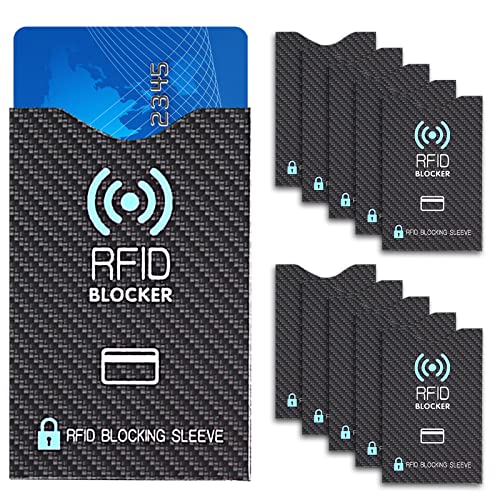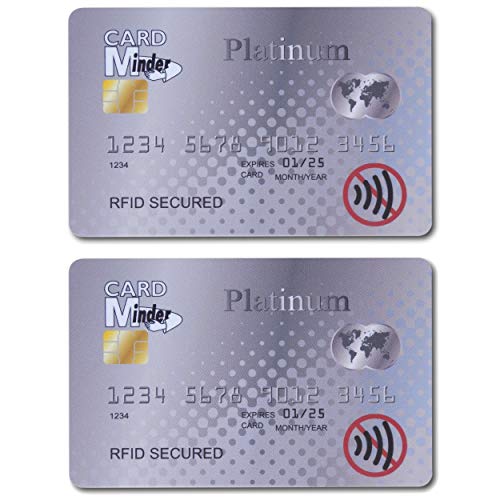Understanding RFID Technology: How it Affects Your Privacy
What is RFID Technology?
RFID, or Radio Frequency Identification, is a technology that uses radio waves to identify and track tags attached to objects. Imagine walking through a store with your shopping cart, and the items automatically get scanned as you reach the checkout – that’s RFID in action. This technology is becoming prevalent not just in retail but also in personal items. It’s used in passports, credit cards, and even some smartphones, enabling quick transactions and easy access.
How RFID Impacts Privacy
While RFID technology offers convenience, it also raises concerns about privacy. For instance, if you’re carrying RFID-enabled cards, anyone with an RFID reader could potentially scan your cards without your knowledge. This means that sensitive information, such as your bank details or personal identification, could be accessed easily by unwelcome individuals. Therefore, understanding how RFID works is crucial for protecting our information in an increasingly connected world.
What is an RFID Blocker and How Does it Work?
The Purpose of RFID Blockers
An RFID blocker is a device designed to prevent unwanted RFID readers from accessing your personal information. Think of it as a protective shield for your RFID-enabled cards. When you place your card inside an RFID-blocking wallet or sleeve, it effectively jams the signals, making it impossible for unauthorized readers to capture your data.
How RFID Blockers Operate
RFID blockers work by using a special material that interferes with radio waves. This material is often metallic or has conductive properties. When an RFID reader tries to scan an object that’s protected by an RFID blocker, the signals are disrupted, preventing any data from being transmitted. It’s like trying to listen to a radio, but someone has put a thick blanket over it—the sound just won’t come through.
How to Choose the Right RFID Blocker for Your Needs
Assessing Your Data Security Needs
Before purchasing an RFID blocker, consider the types of cards you carry. Do you primarily use credit and debit cards, or do you also have security passes? Understanding your needs will help narrow down your options, ensuring that you choose a blocker that offers adequate protection for all your sensitive items.
Evaluating Material and Design
When selecting an RFID blocker, examine the materials used. High-quality blockers incorporate robust metal linings that provide effective shielding without compromising on style or usability. Additionally, think about the design—while some may prefer a sleek wallet, others may opt for a sleeve that fits right into their existing wallet. Comfort and usability are paramount.
Features to Look for in a Quality RFID Blocker
Comprehensive Coverage
A quality RFID blocker should protect against various frequencies since different RFID-enabled cards operate at different frequencies. Ensure the blocker covers both low and high-frequency bands to maximize your protection. This way, whether you’re dealing with bank cards or employee ID passes, you’re safe.
Durability and Warranty
Investing in a durable RFID blocker is essential, as you want it to withstand daily wear and tear. Look for products made from high-quality materials that promise longevity. Additionally, purchasing from manufacturers offering warranties can provide peace of mind, ensuring that you have support should anything go wrong.
Practical Uses and Everyday Scenarios for RFID Blockers
Everyday Use Cases
Using an RFID blocker is simple and can be easily integrated into your daily life. For instance, when you’re out shopping, simply place your cards in an RFID-blocking wallet. This not only protects your information at the point of sale but also when you’re walking in crowded areas. Similarly, when travelling, having an RFID-blocking passport holder keeps your travel documents secure during airport security checks, safeguarding your identity against potential scanning threats.
Keeping Your Information Secure
Think of RFID blockers as an essential tool for modern living, particularly in our digital age where scams and identity theft are prevalent. By adopting an RFID blocker into your routine, you are taking proactive steps to protect your personal information. It’s a small measure that can lead to significant peace of mind, allowing you to navigate your day without fear of your data being compromised.
















